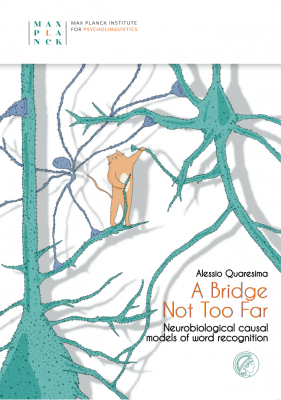Alessio Quaresima defends thesis 12 July

Link to live-stream
When we hear a word utterance, we rapidly recall its meaning. The swift transformation from percepts to language requires we recognise the sequence of speech sounds and retrieve the word associated with it from memory. The thesis investigates how word recognition occurs in the human brain and provides a tentative explanation of a language capacity grounded in the neurobiology of the brain.
In the first half of the thesis, Alessio developed a novel neuron model, the Tripod neuron, which includes properties of human cells, such as the dendritic structure and receptor types. The model shows that dendrites carry a short memory and allow the cell to tell apart simple streams of sequential information, whereas previous soma-only models fail.
In the second part, he integrated the neuron model into a network of a few thousand cells and examined its computational capabilities in a word recognition task. The network succeeded in forming memories with sequential structure and establishing associations between phonemes and words; this was impossible when dendrites were omitted. The dynamics of word memory recall also align with what is observed in experiments with human participants. In conclusion, the model links the brain's physiology and the human capacity to recognize words.
Share this page